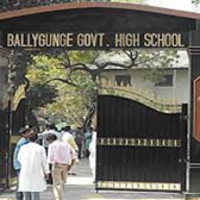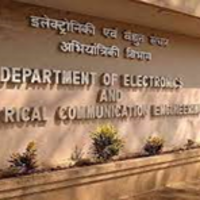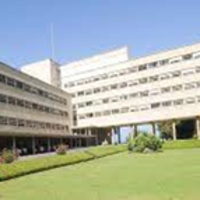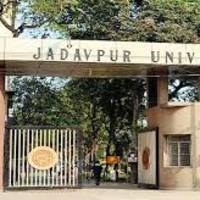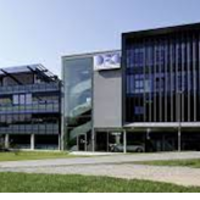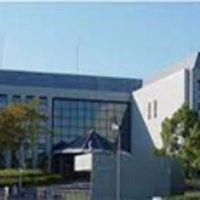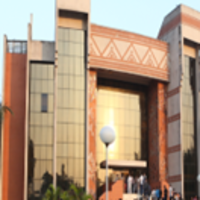Life is a journey with a subtle and intricate orchestration of experiences that cannot be planned or choreographed from the very beginning; it evolves with certain patterns and characteristics as we move along. But to make the journey joyful and meaningful, the coherence, beauty and significance of those life-patterns needs to be designed with conscious efforts. So, it is important to design the patterns of our life we want to enjoy and choose those experiences we want to get involved with in order to create a meaningful expression of our life. Designing a successful life isn’t about reaching a set of goals; it’s about striving for activities that integrate our life with others, makes our life joyful and interesting as well as meaningful to others.
I myself initiated my involvements with some significant transformative experiences, which have helped me to see the big picture or larger themes in my life. My love for academic and professional freedom and deep interest in getting connected with like-minded people from varied disciplines have been the trigger of the experiences I chose to get involved with.
I was born and brought up in Kolkata and completed my eleven years of schooling from Ballygunge Govt High School, one of the renowned-low-cost-Bengali-medium Government schools in Kolkata, from 1963 to 1974. That was an era of vacuum tube radio, followed by transistor radio, and gramophone records, and first-man-on-the-moon ! We hadn’t seen even black-and-white television in our home during that time.

I was a rank-holder in higher secondary examination in 1974. Even then, I simply had no clue what I wanted to do in life; also, I didn’t know the different life and career opportunities available in order to build a well-lived life. However, at that time, it was customary for a Bengali student to strive for either engineering or medicine, or at best, physics honours. So, although I was rather more inclined to study literature or social science, I decided to appear for IITJEE. Strong motivation from some of my classmates and my physics tutor, political unrest in the-then Kolkata due to Naxalite movements with all its repercussions and the attraction of experiencing a hostel life were some of the major factors behind this decision. I got selected and because of my good rank, I was offered Electronics and Electrical Communication Engineering at Indian Institute of Technology Kharagpur (1974-79). I spent a joyful five years and never felt isolated. I co-learnt a lot of things with my peer groups, not only about academic subjects but also music, dramatics, literatures, food & drinks and so on. I learned the beauty of companionship and comradeship, learned to cope with various challenges, learned to be an independent thinker.

After my graduation, I was neither inclined to do higher studies (abroad or in India) nor very keen to sit for job interviews through our campus placement. Our campus placement coordinator was very upset and insisted that I sit for a few job interviews during campus placement. I tried but didn’t succeed because of my half-hearted appetite for corporate jobs. But eventually, when I saw people around me getting jobs or admissions in US Universities, I was a little scared! Finally, my father sent me a newspaper advertisement from Tata Institute of Fundamental Research, Mumbai, looking for a scientific officer to develop microprocessor-based data acquisition systems for their experimental physics research group on High Energy Cosmic Ray. That was my first long-distance travel in train from Kharagpur to Bombay. Fortunately, my final year project was on microprocessor-based systems, a new technological phenomenon at that point of time and I got selected. I worked in Tata Institute of Fundamental Research, Mumbai from 1979 to 1981. I was fascinated not only by the five-star-hotel-like campus on the banks of Arabian sea, but also by the profound academic culture with complete academic freedom and academic sincerity of the researchers. I was not a part of academic group; only assisting them to design and develop their computer-based experimental tools. Even then, I developed a deep friendship with researchers in physics, mathematics and computer science that influenced me to appreciate academics as a profession. Our pastime was filled with film-club activities, musical programs and informal discussions (adda in Bengali) on boundless topics of wide-ranging interests. I wrote my first book in 1981, also the first book on computer in Bengali: কম্পিউটার: আজ ও আগামীকাল["Computer: Aaj o Agamikaal"].
But the city of Kolkata was calling me… I was missing the warm ambience of Kolkata, my friends, my families and started experiencing a deep-routed nostalgia. I decided to be in Kolkata and joined a micro-computer manufacturing company in 1981. But it was only for a few months. The disciplined hierarchy and rigid work culture of that company forced me to apply for a temporary position of System Engineer in a project at Jadavpur University, subsequently renamed as “Appropriate Automation Promotion Programme (AAPP)” funded by United Nations and Ministry of Information Technology, Govt of India. My primary intention was to do a PhD in Jadavpur University to fulfil my dual desire of staying in Kolkata and developing my profile as a prospective academician.
I spent a very important phase of my professional life in Jadavpur University from 1981-85, working on a UN-sponsored project (AAPP) as well as working for my PhD on Dataflow Architecture: a fifth-generation computing system. First time in my life, I went abroad to Germany and USA for a few months with a UNDP fellowship to learn state-of-the-art microprocessor-based systems. The entire academic environment of Jadavpur University was very informal and friendly yet profound. There, I met my mentor and PhD supervisor, Prof. Sukumar Ghosh, who assisted me to explore the world of academics with his intellect and empathy. He never used to give explicit advice, but truly empower his students to cultivate and explore their own pathways. More than a supervisor, he used to be my co-worker and I inherited the legacy of cultivating informal yet profound academic culture with responsiveness towards co-workers, combined with in-dept exploration of knowledge. Apart from my activities in the AAPP lab, I spent a lot of my time in Jadavpur Coffee House with my friends, working towards making 8 mm short-films in celluloid (very expensive in those days due to absence of digital camera) and getting involved in different literary activities in Bengali.

After my PhD, a very senior Professor of Jadavpur University, the -then Director of IIT Bombay, advised me to apply at IIT Bombay. I joined the Computer Science Department of Indian Institute of Technology Bombay as a faculty member in 1986 and stayed there for eight years (1986-1994). It was a truly dynamic and vibrant environment full of events related to teaching, research and professional activities. I started my research and teaching on Artificial Intelligence with a focus on natural language processing. This also helped me to fulfil my desire to do some study in the field of humanities and I started learning cognitive psychology, linguistics, epistemology and so on to understand the process of human cognition and language behaviour.
I went to German Research Centre for Artificial Intelligence (DFKI) Germany (1989-90) in Saarbrucken with a post-doctoral research fellowship from Alexander von Humboldt (AvH) Foundation. I worked on natural language generation processes including the notion of maintaining coherence during language generation process. I was very impressed by the academic freedom and flexibilities along with hospitalities given to the research fellows by the Foundation during their tenure in Germany and even after that. After coming back, I wrote a book in Bengali on "Cognition, intelligence and Computers" to explore the limitations of machine intelligence with respect to cognition, intelligence and knowledge processing ability, which is true till date.

But I still wanted to come back to Kolkata with an academic position, which was difficult to get at that point of time. Finally, I joined the Computer Science Department of Indian Institute of Technology Kharagpur (1994-95), which is, at least, much closer to Kolkata!! However, my stay in IIT Kharagpur was short. I moved to Kolkata with a completely new career venture; I joined IT consulting service of PriceWaterhouse (now PricewaterhouseCoopers) in 1995 and stayed there for 5 years (1995-2000).
Because of my academic profile, I joined PriceWaterhouse to set-up and lead Learning & Professional Development Group of the company. I was not very keen on participating in the rat-race to climb up the corporate ladder. But ERP implementation was very hot in IT consulting in those days and I had to go to Philadelphia to take a training on SAP and I was one of the forerunners to get certified as SAP consultants in India. Even then, I wanted a peaceful life in my small Learning & Professional Development Group, because I wanted to initiate academic research again outside my assigned activities at PriceWaterhouse. Myself, with one of my research-enthusiastic colleague at PW, Dr Amitava Mukherjee (also a PhD from Jadavpur University) and a faculty-member of Jadavpur University, Dr Debashis Saha (later became my faculty-colleague at IIM Calcutta) created an informal research group on “wireless ad hoc network”, an innovative concept in the domain of short-range wireless network. We also initiated informal research tie-ups with two of our NRI friends working in the same domain in USA universities. We had a PhD student and a few BTech students working with us.

After the merger of PriceWaterhouse with Coopers, the corporate dynamics got radically changed and I was feeling uncomfortable. After all, I was not very successful in my corporate career growth at PriceWaterhouse. At the same time, I got immense success as a researcher in the field of “wireless ad hoc network”. My first PhD student submitted her thesis at Jadavpur University. Also, I got an invitation from Advanced Telecommunications Research Institute (ATRI), Japan as a Visiting Researcher to work on a project on wireless ad hoc network with directional antenna. I quit PricewaterhouseCoopers and went to ATRI Japan with a research fellowship from Japan Trust International Research Cooperation Program (2000-2001). ATR was founded with a mission to promote pioneering and creative research in Japan in information and communication-related fields based on international industry-academia-government collaboration. It is located in Kansai Science City, or “Keihanna”, which intersects three prefectures (Kyoto, Nara, Osaka). I spent a very fruitful time as a researcher working on ad hoc networks protocols with directional antenna. Even after completion of my fellowship, I used to visit them every year till 2005 and worked with them on their projects. As a tourist in Japan, I enjoyed plentiful cherry blossoms in Nara, numerous shrines, palaces and garden in Kyoto, and the vibrant and colourful city-life of Osaka. The people around me were extremely helpful and courteous, that made my stay enjoyable and memorable in Japan.

Meanwhile, I got my “dream” job: a faculty position in Kolkata at Indian Institute of Management Calcutta. After returning from Japan, I joined IIM Calcutta and stayed there for more than 21 years till my retirement (2001-2022). My stay in IIM Calcutta was very dynamic and colourful with a lot of research and entrepreneurial activities along with teaching. Initially, I continued my research and teaching in the domain of wireless computer networks and systems and their applications. I continued my research on ad hoc wireless networks with ATR Japan (2001-2005) and co-authored three books and significant numbers of papers in this domain. One of my students got her PhD from Jadavpur University on this. I got a series of externally funded research projects from the Ministry of Information Technology, Govt of India in the area of application of ad hoc wireless and sensor networks in the area of disaster management, pollution monitoring, smart agriculture, traffic control, and so on. Also, I co-founded an ICT start-up in Kolkata, Pervcom Consulting Pvt Ltd. (2005-2014), funded by WEBEL Venture Capital Ltd (Govt of West Bengal, India). Pervcom was the first Indian company to design, develop and productize devices and system solutions for remote tracking, monitoring and management of objects, human beings and environment using Active RFID tags, Sensors and Actuators with wireless mesh networking technologies. The concept was totally new, even in the context of international market, the technology was immature and product development beyond lab-scale was really tough with limited finance; still, we struggled till 2014 with a very limited resources and developed solutions to improving enterprise asset utilization and enterprise security, ensuring miners’ safety in opencast and underground mines, and so on. But we, the academicians, are also not competent enough to do business in Indian market. Finally, we closed our company after selling our know-how to another company.
In 2014, I started a new research group at IIM Calcutta: Social Informatics Research Group.
The objective of Social Informatics Research Group was to evaluate the possible impact of Internet-enabled Social Technologies and to develop and investigate Socially-enabled Applications in empowering underprivileged communities (within the broad umbrella of "ICT for Development"). I Co-Founded and mentored a social entrepreneurial venture, NexConnect Ventures Pvt. Ltd (2017-till date). NexConnect is an Online Live teaching -learning platform that connects quality teachers with all kinds of learners from urban, semi-urban and rural areas through inter¬active on-line LIVE teaching and training sessions using audio-visual content following board/course specific curriculum. Another initiative was NCoRe, funded by Ministry of Science and Technology, which is a community-driven social engagement platform designed to digitally bridge rural-urban knowledge divide.
Staying in IIM Calcutta was a very enriching experience. The academic environment here not only assured academic freedom but also ensured different levels of formal and informal support to pursue my initiatives.
I always wanted to experience a portfolio of activities that didn’t match conventional jobs. So, what on the surface could look like an eclectic collection of interests, I can see that it is all part of a coherent pattern. I choose to work with people and projects that are fully aligned with my own values and seek to make my work not only a way to make a living but an expression of my life. I realized that designing a successful life isn’t about reaching a set of goals; it’s about striving for activities that integrate our life with others, makes our life joyful and interesting as well as meaningful to others.


